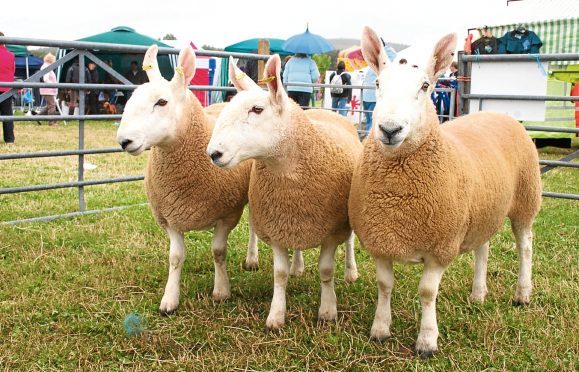Farming and crofting leaders have renewed their appeal to government for urgent changes to be made to the Scottish Upland Sheep Support Scheme (SUSSS).
The scheme, worth around £6million, is designed to assist active hill farmers and crofters through a payment coupled to the number of ewe hoggs they keep as breeding replacements for their flocks. However there are concerns that funding is not well enough targeted and application dates are too tight.
The Scottish Crofting Federation (SCF) says claims by some large farms are excessive and need to be curbed in favour of smaller producers. And it agrees with NFU Scotland’s proposal that the number of eligible ewe hoggs that can be claimed on should be no more than a fixed proportion (20 or 25 per cent) of the ewes and gimmers of the regular breeding flock of the claimant.
SCF vice-chair Yvonne White said the scheme was being misused, with some large producers claiming not only on their replacements but on any number of ewe hoggs, with the surplus then sold off.
“When it is large farms doing this it rapidly uses up the limited budget, depriving others – especially smaller producers – of benefiting from it. This was not the intention of the scheme and it is appropriate that NFUS have recognised this and are proposing a limit on claims of a set percentage of the breeding flock, equivalent to actual replacements,” she said.
“At this stage in the scheme the proposal from NFUS is a step in the right direction at least and should be relatively easy to accommodate in the administrative process, and will increase the payment per hogg.”
NFUS said that the changes proposed would make the scheme more effective in meeting policy goals without compromising requirements such as eligibility, inspection and validation. The union added that changes would be budget neutral.
NFUS has also asked government to alter the current SUSSS application period, which is September 1 to October 16, to the increased period of September 1 to November 30, with the start of a new retention period from December 1 to March 31.
NFUS president Andrew McCornick said: “As a union, we are resolutely focused on making effective changes to SUSSS so that this essential support is targeted correctly.
“We are not seeking to amend the budget or payment rate components of the scheme, but we are seeking to make it more closely aligned to the interests of those businesses it is clearly intended to support.”
A Scottish Government spokesperson said the representations would be considered alongside the impact of EC regulatory requirements which limit the extent of scheme changes.
